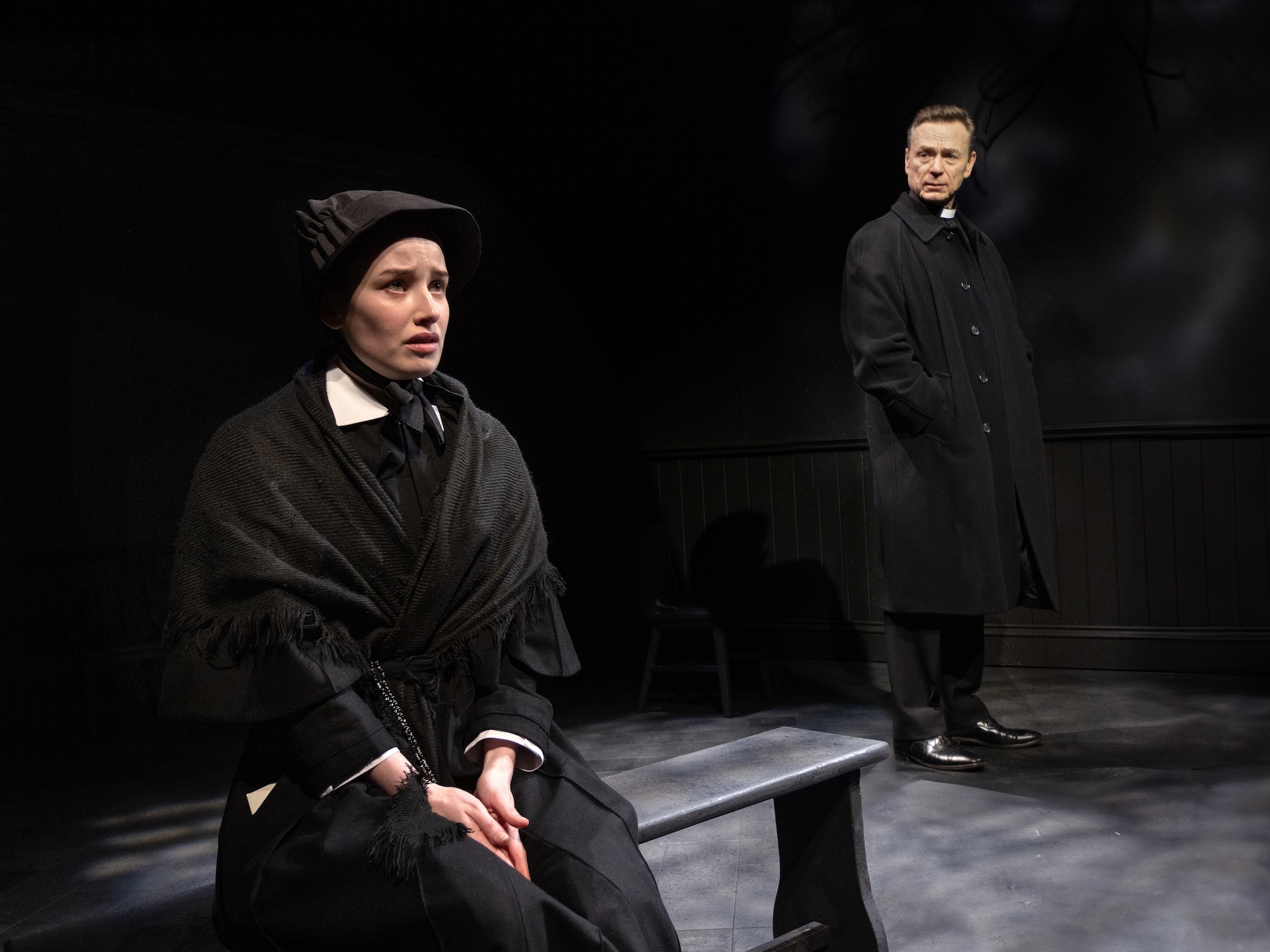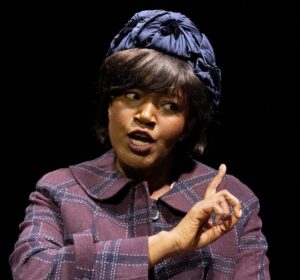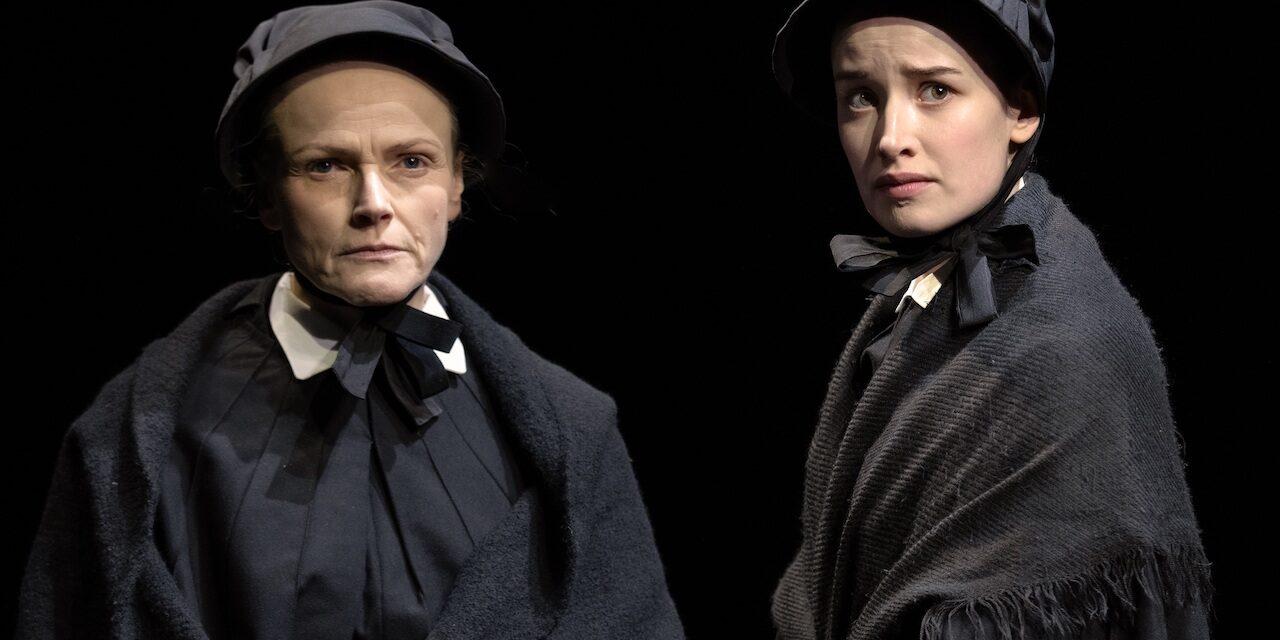
7 February – 8 March
Doubt: A Parable begins with a sermon, delivered by affable Father Flynn (Ben Daniels – charismatic), who tells his Bronx congregation not to be ashamed of doubt, for it is something we all share, and it can bind us together. It is the 1960s, and he is the kind of priest who sought at that time to give the Catholic church a less austere face. Popular with the children at the school, he is as skilled in delivering cleverly crafted homilies as he is in developing the boys’ basketball skills. His thoughts about doubt as a shared experience ring true, but over the following ninety minutes it becomes clear that doubt can divide us too.
Father Flynn is liked by the children, but he is not popular with school principal Sister Aloysius Beauvier (Maxine Peake – sternly assertive), who sees his acceptance of human frailty as a symptom of moral weakness. Dust-dry of voice and chilly of manner, she condemns anything that smacks of pleasure or of ease, be it the paganism of Frosty the Snowman, the convenience of ballpoint pens, or the length of Father Flynn’s fingernails. ‘Satisfaction is a vice’ she asserts, while giving novice teacher Sister James (Holly Godliman – impressive in her professional debut) an assessment of her teaching ability that is so relentlessly negative as to strip her of whatever confidence she may have possessed. Sister James has a warm, open-hearted passion for teaching that is in stark contrast to her superior’s sternly judgmental detachment.
Sister James admires Father Flynn, but it is she who brings to Sister Aloysius some information that has the potential to destroy him. Her pupil Donald Muller is twelve-years old and new to the school; he is its only black pupil and he has not made any friends. When he returns to her class from Father Flynn’s rectory there is the smell of altar wine on his breath. Has the boy been snaffling the wine, or has Father Flynn been taking advantage of his vulnerability?
Sister Aloysius is sure where the blame lies: ‘The little sheep lagging behind is the one the wolf goes for,’ she explains. Mindful of the scandals that have beset the Catholic Church and other institutions, do we find ourselves inclined to give the benefit of the doubt to the immensely likeable but rule-bending Father, or do we side with the far less appealing but sternly principled Mother?
Writer John Patrick Shanley skilfully delineates the subtle power dynamics at play in this conflict. When Sister Aloysius invites the boy’s mother Mrs Muller (Rachel John – uncowed and pragmatic) to a meeting, one might assume that she has found an ally who will support her campaign. But that meeting proves to be counterintuitive, and brings a fresh new perspective to all that has gone before. ‘Some things are not black and white,’ she says, and there is a sense that she has learned the truth of that statement through hard-earned experience.

The battle between the Sister and the Father is delicately balanced, with the tension winding up inexorably towards breaking point. Evidence is disputed, tempers flare, desperate lies are told, and, as so often in life, not everything is resolved at the end. We are left to wrestle with our own doubts.
Directed by Lindsay Posner on a black set featuring solely an illuminated crucifix and the stark bare branches of a tree, this production of Doubt: A Parable is blessed with fine performances from its quartet of actors. The final showdown between the two antagonists had me holding my breath, though it is Rachel John’s powerful ten-minute scene as the boy’s troubled, worldly-wise mother that has stayed most vividly in my memory. Is the writing in places a little too neatly contrived, too clever? Possibly, but Doubt: A Parable is an utterly compelling piece of theatre.
★★★★★ Mike Whitton, 14 February 2025
Photo credit: Simon Annand


